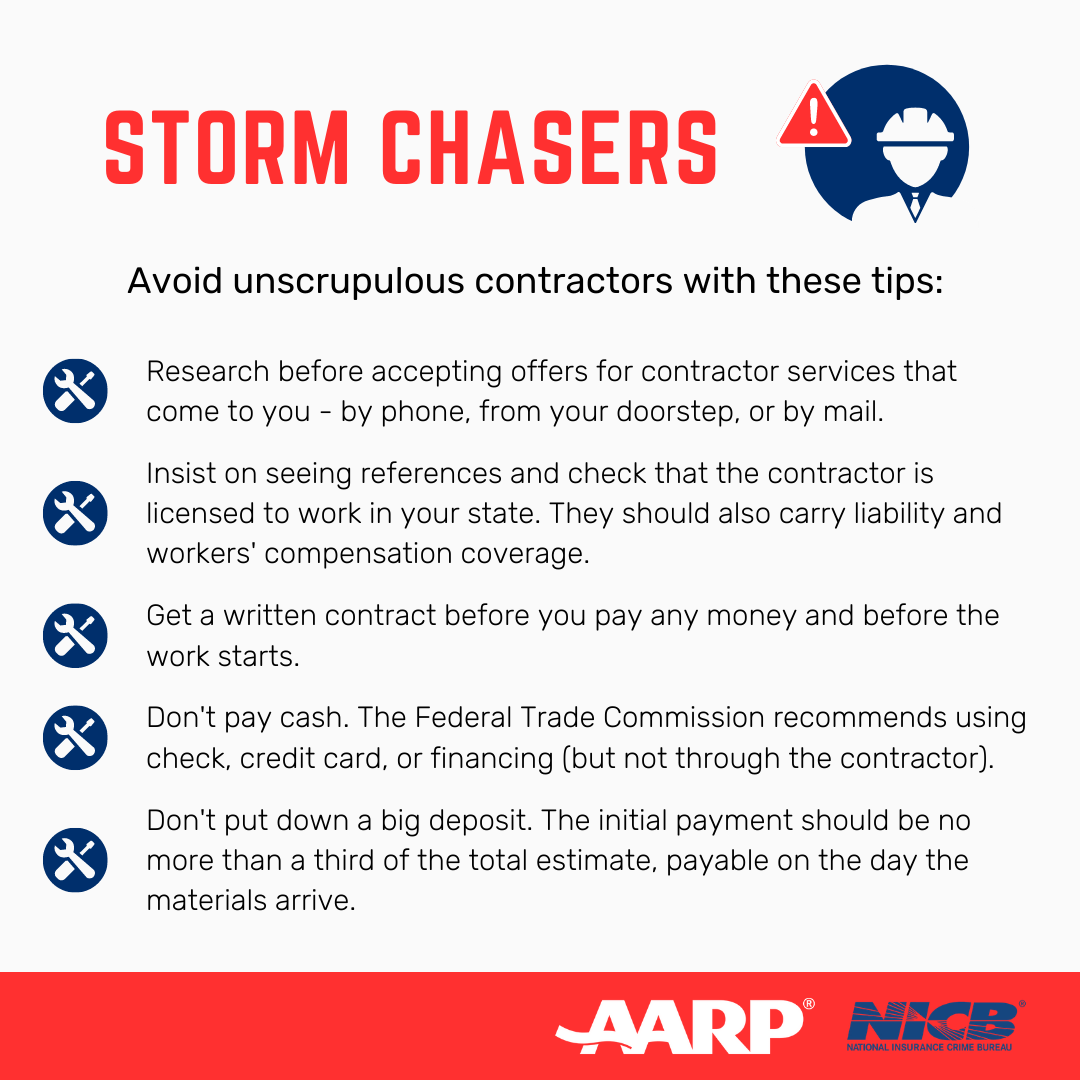Storm Surges Yield Surges in Contractor Fraud
By Kathy Stokes - Director, Fraud Prevention Programs at AARP Fraud Watch Network
2020 was a year of extremes on many fronts. But just focusing on storm fronts, experts tell us the US experienced 22 separate billion-dollar weather-related disasters last year. At this writing, the Insurance Council of Texas anticipated that the state’s February 2021 extreme weather will result in the largest claim event in Texas history.
The only sectors to see this as anything but tragic? Shady contractors and outright scammers.
Following extreme weather events, dubious contractors descend on affected communities, offering quick, cheap fixes for battered homes and businesses or rapid removal of debris. They will want payment up front or will try to persuade you to sign over a payment from your insurance company.
Typically, these “storm chasers” are shady contractors and overcharge for shoddy work – which, depending on local licensing rules, homeowner’s insurance may not cover. Others are outright scammers who take the money and run. Some seek out older homeowners, perceiving them to be more trusting, more likely to have a sizable nest egg, and more prone to have memory or cognitive problems they can exploit.
Sometimes unscrupulous contractors are in cahoots with scammers posing as public insurance adjusters who charge high fees for “damage assessments” and then direct targets to the shady contractor.
While contractor fraud follows weather events, it is not limited to that. Year round, particularly in warm weather, it’s not uncommon to have contractors show up on homeowners’ doorsteps uninvited. They say they happened to be doing some work in the neighborhood and noticed that your house needs some repairs, too. They offer to fix the roof, repave the driveway, or perform other repairs or renovations, for what sounds like a great price. The homeowner is asked to pay up front for the work, then the sham contractor disappears without having done a thing.
These are the precautions we offer to consumers in our education and outreach on spotting and avoiding contractor scams.
- Do your research before accepting offers for contractor services that come to you – by phone, from your doorstep, or by mail. If you need a contractor, proactively research your options.
- Require a bid in writing, and compare bids from multiple contractors before agreeing to any work.
- Insist on seeing references and check that the contractor is licensed to work in your state. Make sure they carry liability and worker’s compensation coverage.
- Get a written contract before you pay any money and before the work starts.
- Don’t pay cash. The Federal Trade Commission recommends using a check or credit card, or arranging financing (but not through the contractor; they may try talking you into taking out a home equity loan or reverse mortgage and arrange for the lender to pay them directly – squelching any incentive to do the job well or even complete it).
- Don’t put down a big deposit. The initial payment should be no more than a third of the total estimate, payable on the day the materials arrive.
Contractor fraud is a year-round phenomenon, but with extreme weather events surging, we can expect contractor scams to surge right along with it.
Kathy Stokes is the director of fraud prevention programs at AARP and heads up the AARP Fraud Watch Network.
